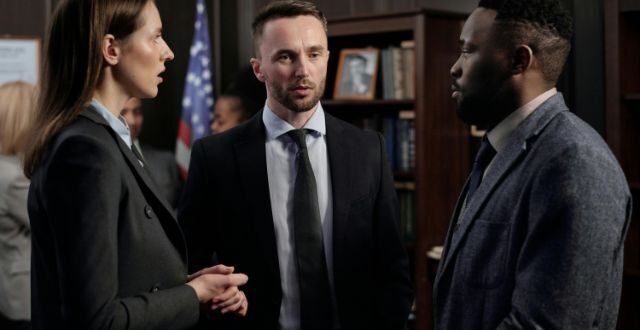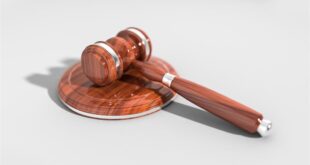A personal injury is an authorized term used for damage caused to your body, mind, or emotions. In the aftershock of a personal injury, the path to recovery extends beyond the healing of physical wounds. Securing fair reimbursement often pivots on the strength of the claim, and that strength is built on a foundation of reliable evidence.
In this article, we will explore why securing the services of a skilled legal professional is paramount in navigating the complexities of legal battles.
Initial Case Assessment
According to the National Safety Council, 63 million people encountered an injury that required immediate medical attention. Personal injuries can happen in various situations, like accidents, car crashes, slips, falls, or injuries caused by defective products.
However, not all injuries are caused by others’ negligence; some can be due to one’s own negligence. Hence, initial case assessment is very important.
An initial case assessment is the basis of a personal injury claim. It’s where a lawyer dives deep to understand your situation. They’ll gather details about the accident, your injuries, and any existing evidence.
This assessment helps determine the claim’s viability, potential value, and the best course of action to secure the compensation you deserve.
Evidence Collection, Preservation, and Legal Deadline
Evidence gathering and protection are crucial to building a strong personal injury case. It involves gathering everything that proves your injury, the cause, and the liable party. This can contain photos of the accident spot and your wounds, witness declarations, police records and medical reports documenting your treatment.
Acting quickly is key, as memories fade and evidence can disappear. An attorney can guide you through this process, ensuring everything is documented and stored securely so that it can be presented effectively when building your case.
Another factor to keep in mind is the statute of limitations. It is the legal deadline for filing a claim, and it varies by state. ConsumerNotice.org reports that nearly all states (almost 50) have a two-year time limit for personal injury or wrongful death lawsuits. Consult your personal injury lawyer to identify when the statute of limitations starts.
Expert Consultations
While a personal injury lawyer is your champion in the courtroom, complex cases may benefit from consultations with additional experts. For instance, an accident reconstruction specialist can analyze crash data to pinpoint faults, while a medical professional can explain the extent of your injuries.
Hiring a lawyer doesn’t negate the value of these experts. A skilled attorney will know when to bring them on board to strengthen your case from every angle. It will probably be maximizing your chances of a successful outcome.
Legal Research and Analysis
The legal landscape surrounding personal injury is intricate, and strong cases are built on a foundation of thorough legal research and analysis.
For instance, as reported in CBS News, a teenage girl and a volleyball player lost both her legs in a car crash in St. Louis. The accident happened last year in June 2023 at a busy intersection in St. Louis, Missouri. She sued two drivers involved in the car and St. Louis city.
In similar personal injury incidents, St. Louis personal injury lawyers would meticulously examine the case. They would examine traffic laws, analyze police reports, and research similar past cases in St. Louis to understand legal precedents.
This in-depth analysis helps them craft persuasive arguments that demonstrate liability and maximize compensation for medical bills, lost wages, and pain and suffering. Personal injury lawyers are adept at navigating these legal complexities, ensuring your claim is offered on the toughest possible basis.
Negotiation and Settlement
Settlement involving negotiation is usually the preferred outcome in personal injury cases. While you have the right to go for a trial, it can be lengthy and expensive.
An experienced attorney will negotiate aggressively with the at-fault party’s insurance company, leveraging the gathered evidence and legal analysis. This will help safeguard a fair reimbursement that covers your medical expenses, lost income, and other costs.
Throughout this procedure, your lawyer will update you and ensure you understand the terms of any settlement offer before you decide to accept. Remember, you have the final say, and an accomplished advocate will fight to get you the compensation you deserve.
Trial Preparation
While settlement is preferable, there are circumstances where a trial becomes necessary.
According to Forbes, out of all the personal injury claims that went for a trial, only 50% could succeed. Thorough trial preparation is crucial to ensuring that your case goes to trial and enhances its likelihood of success.
Your lawyer will meticulously organize your case, crafting a compelling narrative outlining the facts, your injuries, and the liable party’s negligence.
It involves witness preparation, anticipating opposing arguments, and developing a trial strategy designed to resonate with the jury. It’s a complex undertaking, but a skilled attorney will ensure your case is presented persuasively, maximizing your chances of a successful verdict at trial.
Frequently Asked Questions
What types of evidence are typically collected in personal injury cases?
In personal injury cases, typical evidence collected includes photos of accidents to document the conditions that led to your injury. Medical records detailing the type and extent of your wounds and treatment.
Police reports that contain details about the accident and potentially assign fault. Witness statements from persons who saw the accident and can validate your story.
How do lawyers ensure the reliability and admissibility of evidence?
Lawyers ensure evidence reliability and admissibility through various methods like, verification, chain of custody, and legal expertise. They confirm the authenticity of evidence through source checks.
They meticulously document evidence handling to ensure it hasn’t been tampered with. They understand court rules to ensure evidence is presented according to admissibility guidelines.
How do experts contribute to gathering evidence for personal injury claims?
Medical professionals can analyze medical records to assess the severity and cause of injuries. Accident reconstruction specialists can examine the scene and provide insights into how the accident happened.
Financial experts can estimate lost wages and future earning potential due to the injury. Their combined expertise strengthens the claim by providing a comprehensive picture of the damages.
To conclude, navigating the legal complexities and securing fair compensation can feel overwhelming after a personal injury. This article has highlighted the crucial role lawyers play in building a strong personal injury case.
From meticulously gathering and preserving evidence to conducting legal research and crafting persuasive arguments, their expertise is invaluable.
While settlement is often the preferred outcome, skilled lawyers are also prepared to take your case to trial if necessary. Remember, you deserve fair compensation for your injuries, and a qualified personal injury lawyer can be your strongest advocate throughout the entire process.
 khamush.com Lifestyle | Motivation | Poems
khamush.com Lifestyle | Motivation | Poems



